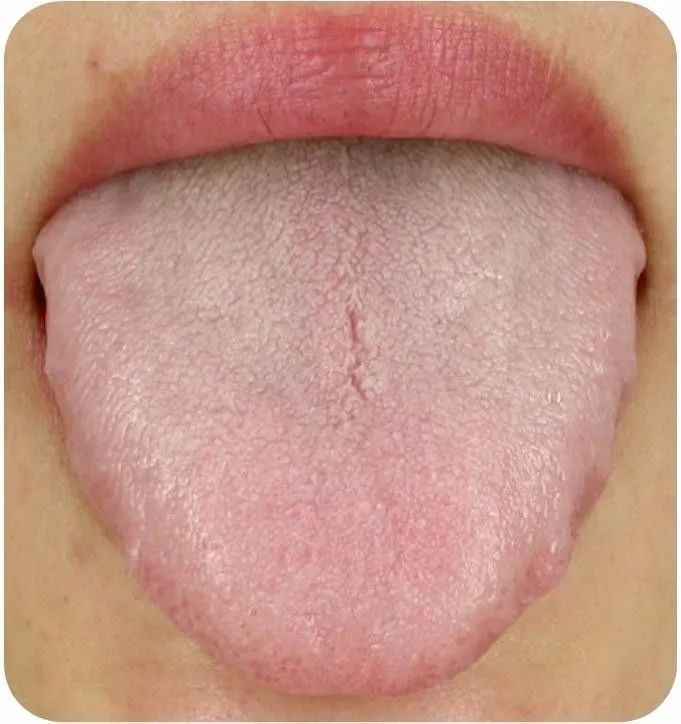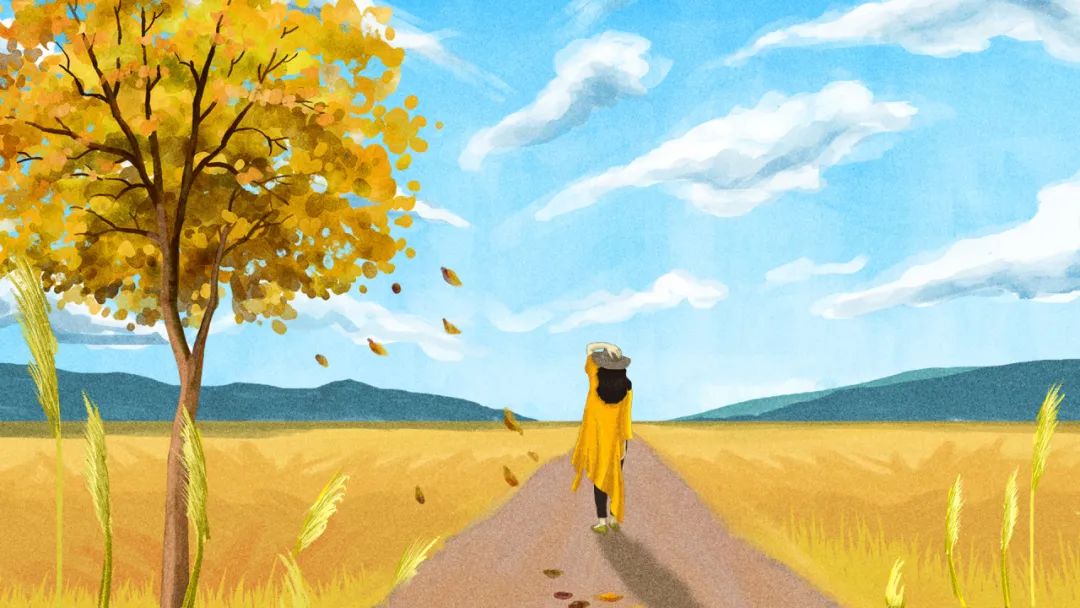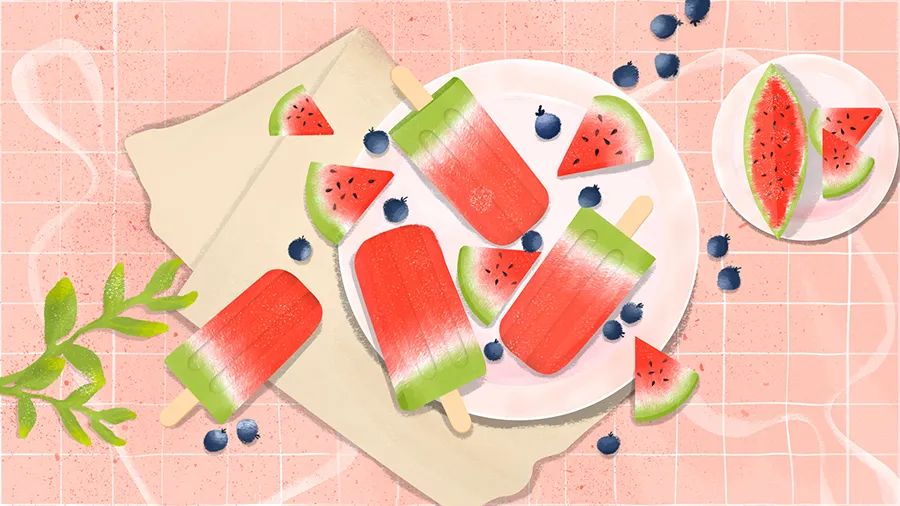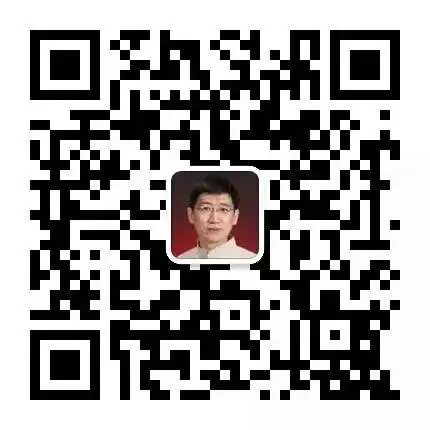
Currently, there are many articles discussing seasonal health maintenance, but I believe that if everyone follows the same health regimen during a season, there might be an issue. Today, I will discuss how individuals with Qi deficiency should nourish themselves in autumn.
First, let’s take a look at what individuals with Qi deficiency are like.
In Traditional Chinese Medicine (TCM), Qi is the most fundamental substance of the human body, formed by the combination of the essence from the kidneys, the Qi derived from the spleen and stomach’s absorption and transformation of food, and the clear Qi inhaled by the lungs.
Qi deficiency refers to the reduction of Qi’s functions in promoting, warming, defending, consolidating, and transforming.
Individuals with Qi deficiency have weak defensive Qi, making their skin surface unstable, leading to easy sweating; even slight movement can cause sweating, and they are sensitive to wind and cold;
Qi deficiency results in insufficient nourishment to the muscles of the limbs, causing overall fatigue and weakness; even slight exercise can lead to exhaustion;
Qi deficiency leads to the failure of clear Yang to rise, resulting in a lack of nourishment to the sensory orifices, causing mental fatigue, dizziness, and tinnitus, which worsen after exertion;
Qi deficiency results in insufficient central Qi, leading to a low voice, fatigue, and weakness;
Qi deficiency impairs the circulation of blood, resulting in cold limbs, pale complexion, and weak or thin pulse;
Qi deficiency disrupts the metabolism of fluids, leading to the inability to transform and distribute fluids, which can result in phlegm accumulation and, in severe cases, edema due to excessive dampness;
Severe Qi deficiency can lead to the descent of central Qi, causing organ prolapse and a decline in organ function, manifesting a series of symptoms of organ weakness.
So, what does the tongue appearance of Qi deficiency look like? A tongue indicative of Qi deficiency is often swollen, with scalloped edges, and the coating may be thick (though this is not always the case). The presence of scalloped edges is one of the most important indicators of Qi deficiency.


△ Tongue appearance of Qi deficiency
Now, let’s discuss how individuals with Qi deficiency can protect themselves as the weather cools in autumn.
1
✦
In autumn, individuals with Qi deficiency should pay attention to moderating desires and protecting kidney essence and Qi.
As the weather cools in autumn, there is a pervasive chill in the air, and people must confront the external cold, which is absent in summer. Therefore, the body must mobilize its righteous Qi to defend against the cold. The source of this righteous Qi is rooted in kidney Qi, making it crucial to ensure sufficient kidney essence and Qi at this time.

◎ Image authorized by Baotu Network
Thus, during autumn, one should not indulge excessively in desires, including ambitions and sexual desires. When ambitions arise and thoughts of gain become overwhelming, excessive thinking can deplete kidney essence and Qi, which contradicts the need for the body’s Qi to gather and accumulate righteous Qi to defend against external cold.
Therefore, the Huangdi Neijing states: “In the three months of autumn, this is called ‘Rongping.’ The weather is urgent, and the earth’s Qi is clear. Go to bed early and rise early, aligning with the rooster’s crow, to calm the mind, alleviate autumn’s harshness, and gather the spirit, making the autumn Qi balanced. Do not let your desires wander outside, allowing the lung Qi to remain clear. This is the way to nourish and gather in autumn; going against it will harm the lungs, leading to winter’s diarrhea, and those who store will be few.” The phrases “calm the mind” and “do not let your desires wander” carry this meaning.
Moderating sexual desires is a direct method to nourish kidney essence and Qi. At this time, individuals with Qi deficiency already have insufficient righteous Qi, and their defensive forces are lacking. If they engage in sexual activity, it further depletes kidney essence and Qi, leading to even greater deficiency and illness.
Individuals with Qi deficiency, particularly those with kidney Qi deficiency, may exhibit symptoms such as fatigue, excessive daytime sleepiness, dizziness, forgetfulness, weakness in the lower back and knees, frequent clear urination, nocturia, reduced libido, male impotence, and female clear and thin vaginal discharge, with a pale tongue and weak pulse. If the kidneys do not retain Qi, breathing may be shallow and rapid.
If these symptoms are present, in addition to moderating desires in autumn, it is also necessary to timely tonify kidney Qi. For example, taking Jinkui Shenqi Wan (Kidney Qi Pill) or Wuzi Yanzong Wan (Five-Seed Pill) can be beneficial.
2
✦
In autumn, individuals with Qi deficiency should adjust their clothing.
Individuals with Qi deficiency often find it challenging to know how to dress in autumn. Why is that?
Individuals with Qi deficiency are prone to spontaneous sweating; even slight movement can cause sweating, and they are also sensitive to wind and cold. After sweating, a slight breeze can easily lead to a cold. This is a characteristic of individuals with Qi deficiency.
However, the autumn weather seems to be particularly challenging for those with Qi deficiency. The mornings and evenings are cool, even cold, so it is essential to wear more clothing, especially for those with Qi deficiency, as their bodies are intolerant to cold due to insufficient defensive Qi. Therefore, they must dress warmly in the early morning and evening.

◎ Image authorized by Baotu Network
However, at noon, the autumn sun is abundant, and the temperature can be quite high. Individuals with Qi deficiency may struggle because the heat causes them to sweat, leading them to want to remove their clothing. But once they do, the autumn wind is quite cool, and especially in shaded areas without sunlight, those with Qi deficiency who are sweating profusely may feel chilled by the wind.
As you can see, it is a dilemma of whether to bundle up or strip down. Therefore, the common advice of “dress warmly in spring and endure the cold in autumn” is not applicable for individuals with Qi deficiency. Regardless, if they are not careful, they can easily catch a cold. Thus, in autumn, the sweating and sensitivity to wind of individuals with Qi deficiency can make them feel quite out of control.
Therefore, it is crucial to adjust clothing frequently: wear more in the morning and evening, wear less at noon, wear more in shaded areas, and wear less in sunlight, making frequent adjustments to protect oneself.
Some friends might say that constantly changing clothes is not a practical solution. Indeed, the fundamental approach is to replenish the Qi of the spleen and lungs.
In TCM, the lungs govern Qi, control respiration, regulate fluid pathways, and protect the body. If lung Qi is deficient, its functions of dispersing and descending, controlling respiration, regulating fluid metabolism, and resisting external pathogens will weaken, leading to symptoms such as shortness of breath, spontaneous sweating, low voice, cough, asthma, chest tightness, susceptibility to colds, and even edema and urinary difficulties.
Therefore, individuals with weak lung Qi must tonify the lungs. The spleen belongs to earth, and the lungs belong to metal; earth generates metal. Thus, the strength of the spleen and stomach directly determines the strength of lung Qi, which is why TCM often emphasizes the simultaneous tonification of the spleen and lungs.
Thus, during this time, individuals with Qi deficiency can regularly consume Huai Shan Yao (Chinese Yam), such as Huai Shan Yao powder or slices boiled in water, and it is even better when combined with ingredients like Yi Yi Ren (Job’s Tears), Qian Shi (Euryale Seed), and Lian Zi (Lotus Seed).
As for proprietary Chinese medicines, Buzhong Yiqi Wan (Tonify the Middle and Boost Qi Pill) can be a good choice for tonification.
Additionally, Ren Shen (Ginseng) is also a suitable herb for this season. Nowadays, fewer people in the north understand how to consume ginseng, while those in the south are more knowledgeable about supplementation. This is mainly because many believe that ginseng can cause heat. However, individuals with Qi deficiency can take some ginseng, as it is appropriate for their condition. Alternatively, they can use ginseng-containing formulas, such as Sheng Mai Yin (Generate the Pulse Decoction). They can also try making Samgyetang (Ginseng Chicken Soup) like the Koreans do. These are all excellent ideas for tonifying lung Qi.

◎ Image authorized by Baotu Network
Moreover, Huang Qi (Astragalus) is also a lung Qi tonifying herb. If individuals with Qi deficiency can add a bit of Huang Qi when making soup, it will greatly benefit their health.
3
✦
Individuals with Qi deficiency should be cautious to prevent cold from affecting the spleen and stomach in autumn.
As the weather cools in autumn, people’s eating habits often remain in summer mode, leading to many suffering as a result.
For example, in summer, we eat watermelon, but in autumn, some people still indulge in watermelon, which is not appropriate. The ancients were very particular about this; even when prescribing medicine, they would consider the seasons. The famous physician Qian Yi from the Song Dynasty would adjust the proportion of cooling herbs in prescriptions during autumn, reducing them and increasing the proportion of warming and spleen-tonifying herbs, demonstrating thorough consideration.

◎ Image authorized by Baotu Network
Recently, as the weather has turned cold, there has been a noticeable increase in abdominal pain, diarrhea, and even gastrointestinal flu, all due to the spleen and stomach being weak. If individuals with Qi deficiency consume cold foods, such as various raw and cold items, it can lead to damage to the spleen and stomach.
Therefore, during this season, individuals with Qi deficiency, especially those with weak spleen Qi, must pay close attention to their diet: do not eat raw or cold foods, and do not drink ice-cold water. This is a very important rule for self-protection.
4
✦
Individuals with Qi deficiency should adjust their emotions in autumn.
Individuals with Qi deficiency lack vitality, making them prone to fatigue and weakness. In autumn, as the environment becomes harsh, their bodies can easily be influenced by external conditions, leading to negative emotions such as sadness. Therefore, when it comes to the melancholy of autumn, individuals with Qi deficiency and Yang deficiency may experience it more severely.
Thus, it is best for individuals with Qi deficiency in autumn not to isolate themselves but to participate in group activities to adjust their emotions and engage in various cultural and physical activities to enhance their mood.
Nowadays, whenever someone in their forties or fifties comes to me for health consultations, if I detect any signs of liver Qi stagnation or poor emotional state, I always recommend they join a square dance. I believe that square dancing is not just simple physical exercise but a form of psychological adjustment. When many people come together, moving in the same rhythm and performing the same actions, it creates a sense of community. In this process, each individual feels integrated into this strong community, which boosts their psychological energy to combat negative emotions. Thus, those who participate in square dancing often report feeling very good afterward, and this is the reason.
Additionally, joining a singing group can also be beneficial. A few years ago, I wrote two articles discussing how singing is a form of exercise that can regulate the lung meridian and enhance lung Qi. I encourage everyone to visit karaoke in the afternoon, as the prices are very affordable at that time. These articles have been widely circulated, and many elderly people have read them.
As a result, I later heard that many elderly people across the country have started to occupy the afternoon slots at karaoke venues, and some even become so engrossed in singing that they forget important tasks like picking up their grandchildren!

◎ Image authorized by Baotu Network
In fact, this makes me very happy. Such cultural and recreational activities are greatly beneficial for the elderly! Especially in autumn, for individuals with Qi deficiency, regularly singing can promote vitality and greatly benefit emotional regulation.
Well, I have shared many considerations for individuals with Qi deficiency in autumn. I hope everyone pays attention to these adjustments and successfully navigates through the autumn season.
— THE END —
Related Articles Review
☀Proprietary Chinese Medicine for Kidney Essence Deficiency — Wuzi Yanzong Wan
☀Preventing Illness is as Important as Treating It — Buzhong Yiqi to Help You
☀Incredible Healing Power of Singing
For more related articles, please search within our public account.
☀Article Search Guide
❃Article by Luo Dalun
❃Edited by Ziye
❃Cover Image authorized by Baotu Network
❃All images in the text are credited; please do not use without authorization.


Prize-Winning Essay Collection
If you also have a story related to TCM that you must share, please write it down and submit it to us. Articles should be submitted in Word document format to our email.
Submitted articles must be original and include your WeChat nickname, name, phone number, address, and other contact information. After screening, we will obtain authorization from the authors to publish in our channel, and once published, we will send you a signed book by Dr. Luo.
Thank you for your positive feedback. We look forward to you sharing your story with TCM with us and more people, allowing more individuals to experience the charm of Chinese culture.

Dr. Luo’s official WeChat public account has the following four, please scan the QR code to follow. Any others are imitations, please do not be deceived!

Dr. Luo’s Channel
WeChat ID: luodalunpd
Dalun Academy
WeChat ID: Dalun_sy


Dalun Parenting Talk
WeChat ID: dalun_yes
Dr. Luo Dalun
WeChat ID: Drluodalun

🔹 The copyright of original articles in this public account belongs to this account. If you need to reprint, please leave a message to the editor and indicate the source. Commercial use is prohibited.
🔹 The articles reprinted by this public account are for learning and communication purposes only and fall within the scope of fair use. If there are errors in the attribution of images, data sources, or text copyright, please inform the editor, and they will correct or delete it immediately.
🔹 This public account holds the portrait rights of Dr. Luo Dalun. Any unauthorized use will be pursued legally.
🔹 This public account is legally supported by Beijing Zhongzhe (Shenyang) Law Firm, and this account will pursue legal responsibility for any unauthorized reprints, commercial use, and refusal to delete posts after warnings.

